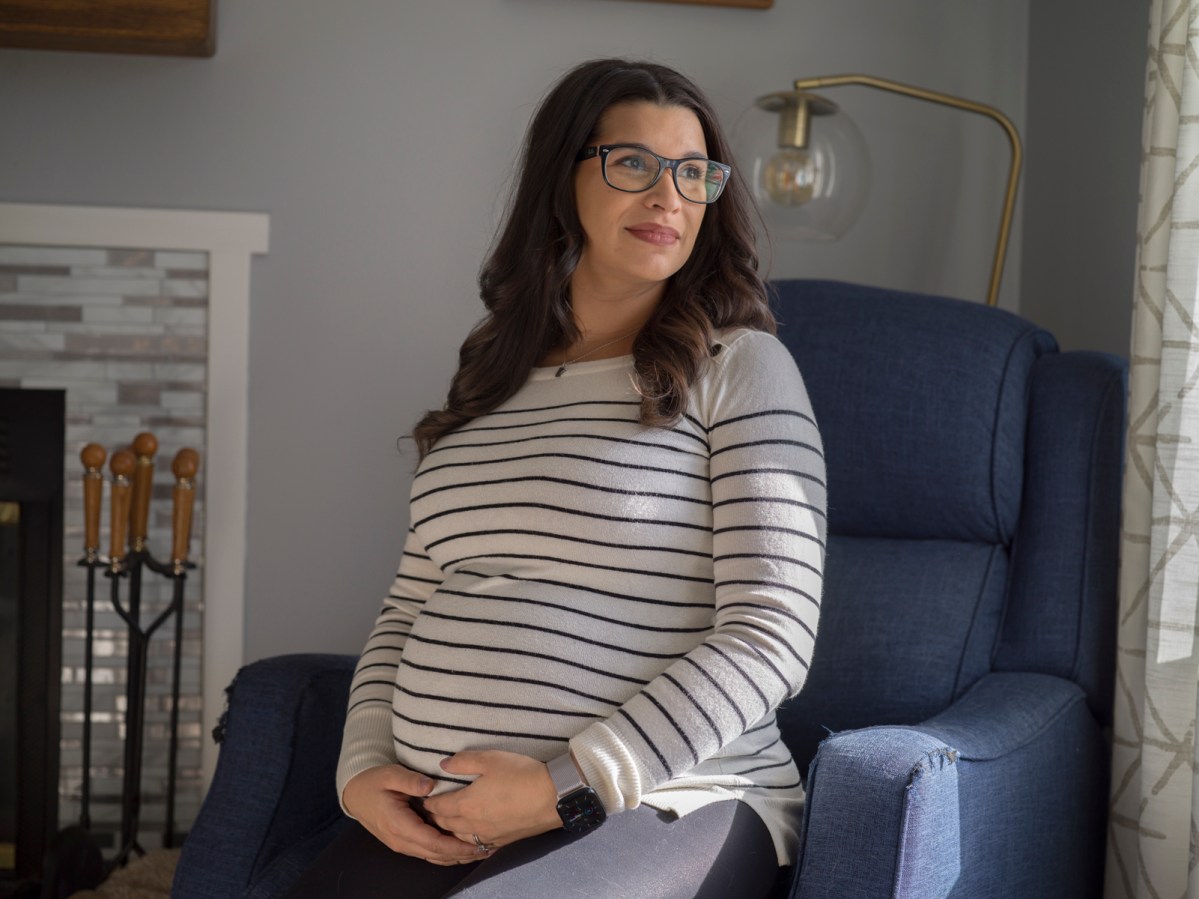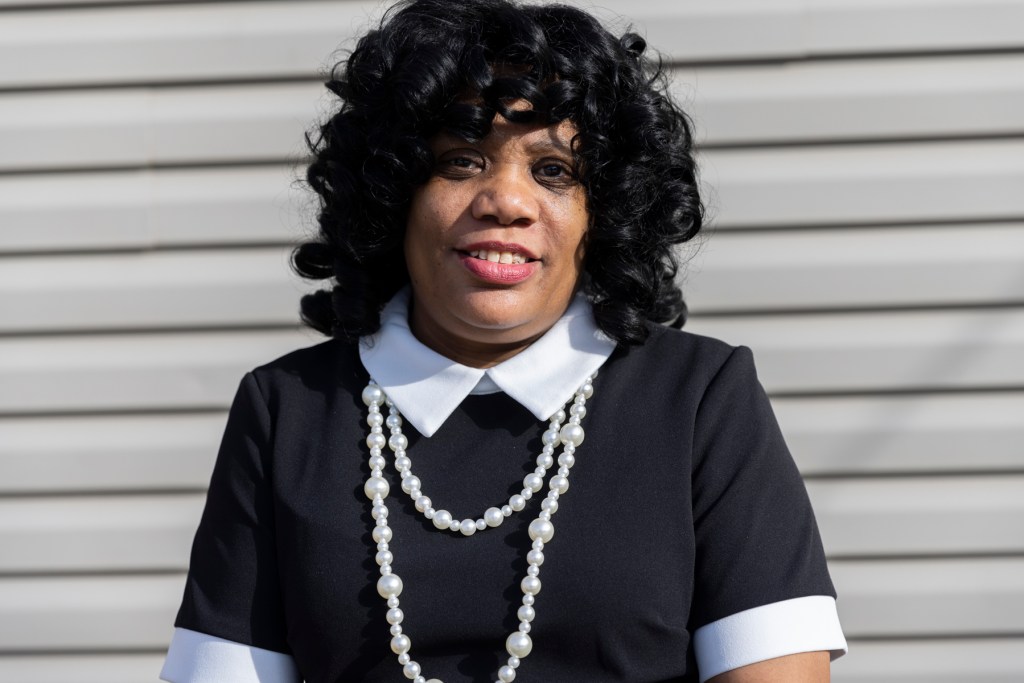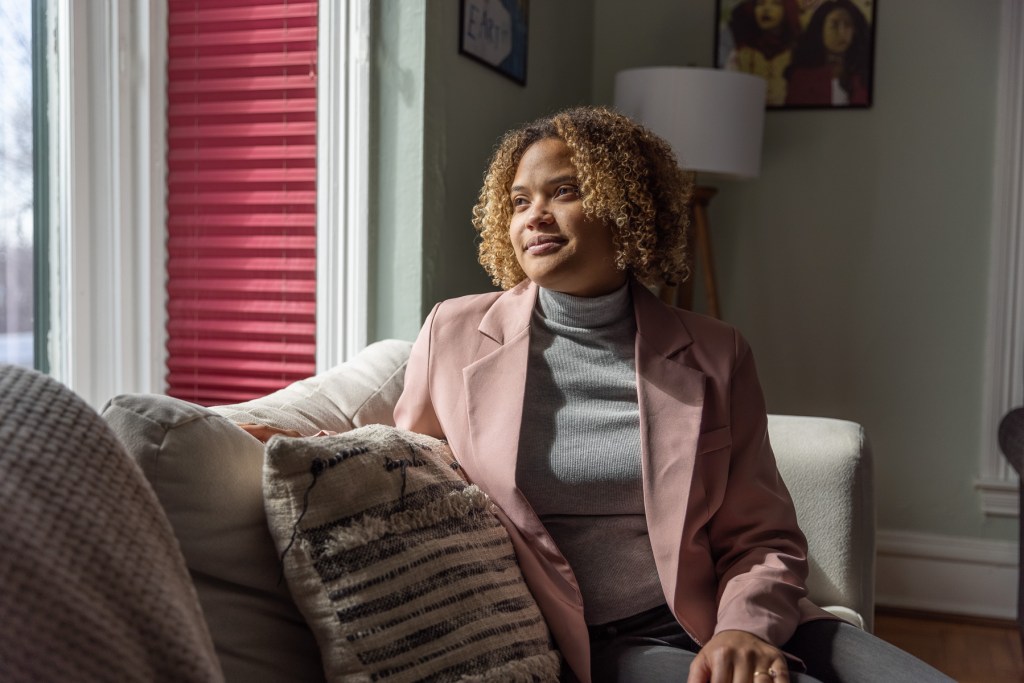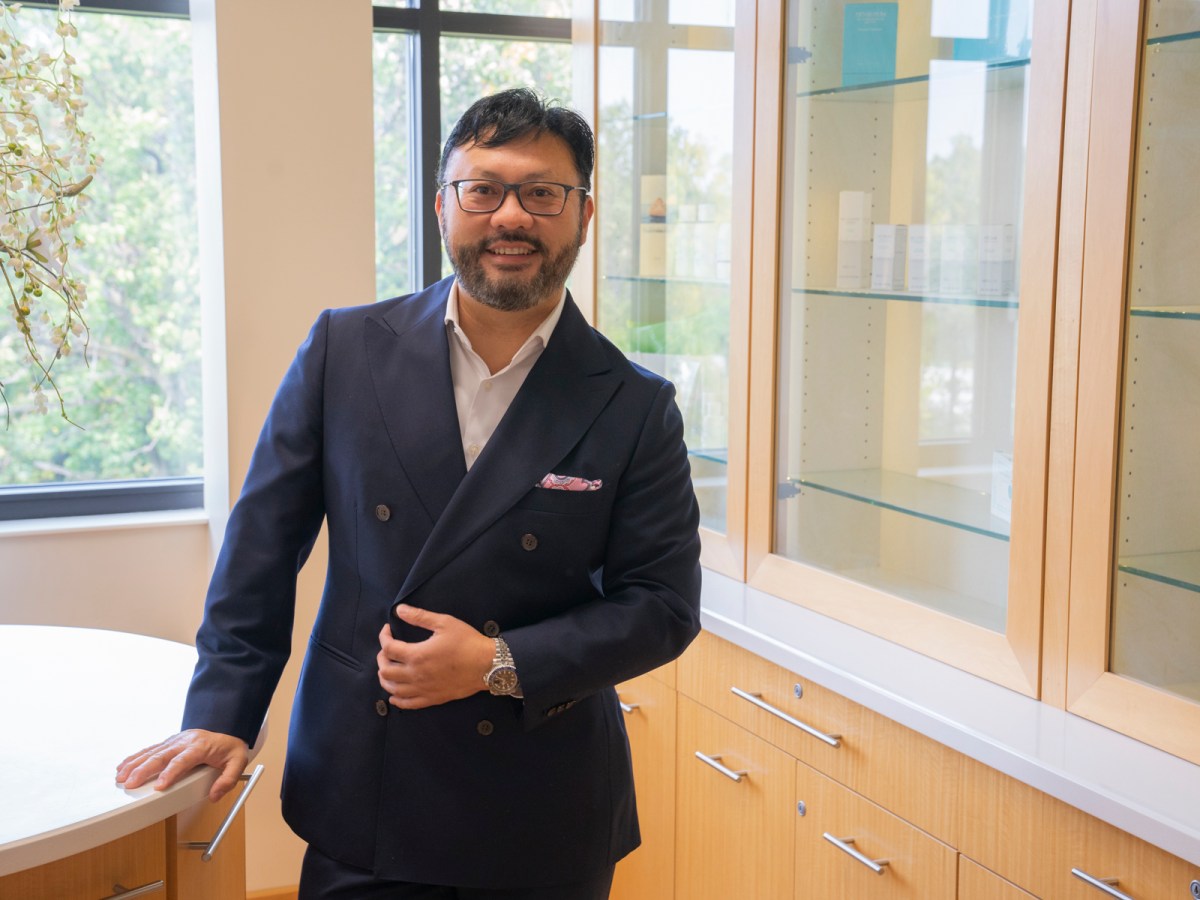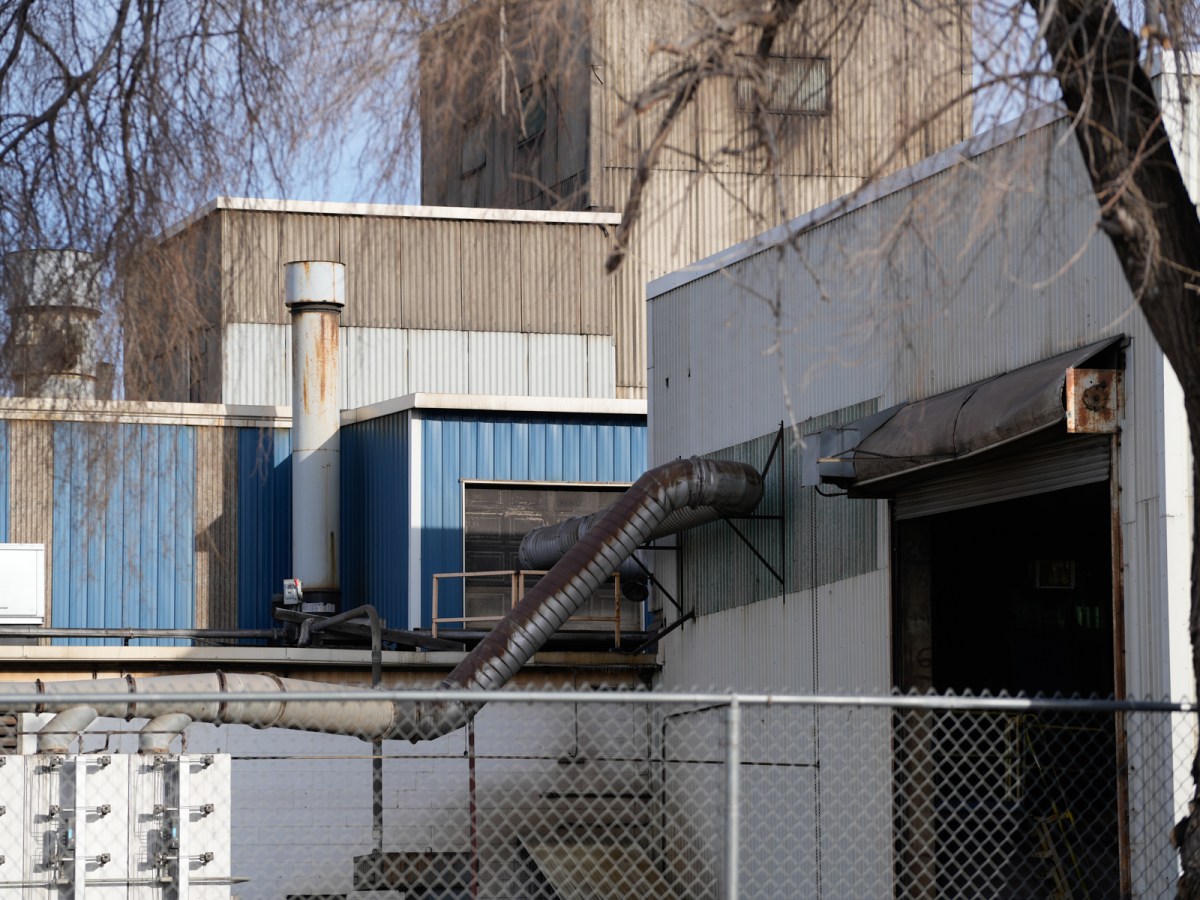Erin Maye Quade, 36, is running to represent District 56 (formerly District 57) in the state Senate, which includes Apple Valley, Rosemount, and the southeastern part of Eagan. She’s a resident of Apple Valley and a former state representative. Maye Quade served in the Minnesota House of Representatives in 2017 before running for lieutenant governor as Erin Murphy’s running mate in 2018.
Maye Quade’s answers have been edited below for length and clarity.
Why are you running for office?
I was born and raised in the community that I’ve represented. I’ve lived here my whole life. Part of the reason I ran the first time was to change the systems. I ran because of the issue of childhood hunger, and I wanted to change the systems that didn’t allow parents to feed their kids and pay rent in the same month.
The reason I decided to run for the Senate is that the pandemic has laid bare so many things. I always say that systems aren’t broken, they’re working exactly as they were designed to. We can’t keep tinkering on the edges of our problems and hope to find solutions. We really have to fundamentally change systems for the outcomes that we hope to have. People are really hungry for that. Small solutions aren’t solutions anymore.
What would it mean for you to potentially be among the first Black women elected to the Minnesota Senate?
It’s such a loaded feeling. I was the third Black woman elected to Minnesota House, which was an honor. And I was the first Black woman ever elected to the Minnesota legislature from outside Minneapolis or St. Paul. It’s a milestone, but at the same time, it’s 2022. This should not be the first time in our state that we’re electing Black women into the state Senate. Every policy decision that has ever been made in the state happened without input from Black women from the upper chamber. And that’s not good. I don’t think you can have a democracy without Black women.
What do you hope to accomplish, especially as Minnesotans recover post-pandemic?
Especially in the Senate, there needs to be a return to the things that are really plaguing people’s lives. When you look at the Senate Republicans, they are focusing on things that are meant to instill fear, surveillance, censorship over teachers, parents, and students. They’re meant to instill division in places where people have found unity, especially the last few years. How are we going to get mental health support for our students? How are we going to make sure that we can afford to pay rent? How are we going to make sure that we’re stopping the climate crisis? These are real concerns. It’s long past time that the Senate returns to focusing on the real concerns of Minnesotans, and that’s obviously not going to happen under Republican control.
Let’s dive into a specific policy issue. As you know the teachers in Minneapolis are currently on strike. What would your plan be to address funding for things like English language and special education services?
We are behind on fully funding education, and that really is due to one or both chambers being controlled by Republicans. When we get to negotiations, it’s like, how little can Republicans fund schools? That’s what we negotiate. And that’s super frustrating.
We also have the worst student-to-counselor ratio in the entire nation. So we’re not just looking at needing to hire more counselors, but also valuing the people who work in our schools. We don’t treat, in this country, children as a public good. We don’t treat the people who have children, who care for children, who educate children, who feed children, we don’t treat them well. And then we’re always surprised by the outcomes.
How are we strengthening the systems that support kids and families? That includes our schools. That includes paying teachers a fair wage. That includes paying support staff a living wage. And it includes responding to their needs. The asks that the Minneapolis teachers have are what we should all be doing to focus on our students. What’s difficult is that there are many levers of power that exist when it comes to school funding. But legislators should take note that our underfunding of schools has had serious consequences, and it’s time that we really direct that funding to the places that need it most.
We’ve seen just how difficult it is to operate in a divided legislature and Republican-majority Senate. If the same outcome occurs in November, how do you plan to push for the DFL’s agenda while also engaging with Republicans?
That’s probably what my policy experience is most. I legislated in a divided legislature already in the minority as a freshman. Still got a bill passed. It does take different kinds of work, different kinds of relationship-building. It’s one of the things I like about this Senate is that their terms are for four years and not two years so you have more time to get to know people and do policy work. But also, I’m an organizer. That is the experience I want to bring to this work. I build coalitions, manage coalitions, and organize community.
How do you plan to engage immigrant communities and communities of color?
Often we talk about immigrant communities and people of color like they’re separate. I’m evidence that they’re not. I am a woman of color who was born and raised in this community, an ever increasing diverse community. Being from communities that are traditionally marginalized means you often start from a place of engaging your own community. It’s just more natural.
It takes work to be intentional. So for example, I tried to push our Senate district to move our convention because Ramadan starts in April. So some of it is just situational awareness and being able to carry the lived experiences of people who live in your community. It was too late to move it. But I know I was the only candidate who noticed and asked. A decent chunk of delegates in my district are from the Muslim Coalition, which is awesome. But it means making sure that I’m not just going to my own church, and that I’m engaging with the mosque in my community. It really is just being intentional about outreach, and available, too. Immigrant communities and communities of color are also very interested in politics. If you make yourself available, people that you might not traditionally reach know how to reach you.
Communities of color have felt a lot of trauma—going through a pandemic that disproportionately impacted them, living through the killing of George Floyd and the uprising that followed—how would you describe the mood of Minnesotans right now?
People are really hungry for hope. Despair is the last act of oppression. It’s not death. It’s despair. Like, no matter what you do, no matter how hard you try, nothing’s going to change. So why bother?
That’s one of the most engaging parts of my campaign. I have a lot of hope about what we can do together. I know that we can unlock a really powerful kind of politics that makes material changes in people’s lives. I know that is possible. These last few years have been really unstabilizing. But we’re realizing how interconnected we are, how much we do rely on one another, how much we need one another to not just survive, but thrive.
When you put the vision of Republicans up against the vision of Democrats, you have Republicans saying, ‘Turn inward. Don’t worry about anybody else. Only worry about yourself. You have everything to be scared of and nothing to be hopeful for.’ Fear is a very powerful frame of mind. But people are ready to be hopeful. They are ready to see that good governance is something that we can achieve and that we don’t have to demonize one another in order for us to all live with abundance.
UPDATED: This article has been updated with new redistricting information.



